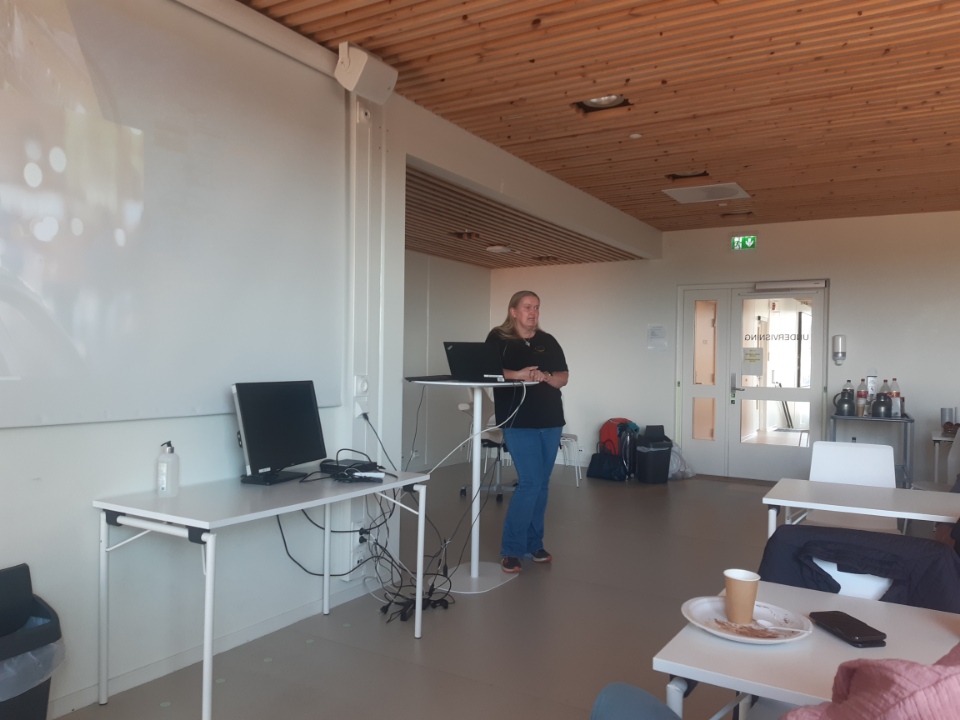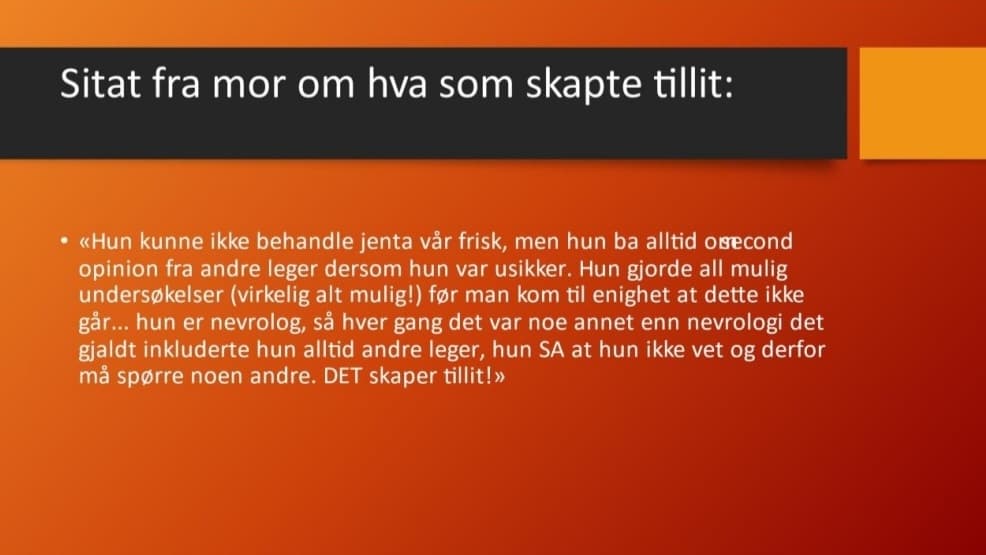CHILD CARE ON THE AGENDA IN STAVANGER MUNICIPALITY

Today, Nina was in Bakkefjord and gave a lecture for the children's palliative care team and a relief home in Stavanger municipality. They were given an insight into the everyday lives of families who live lives that are not similar to theirs. Everyday life consisting of an extreme time crunch, preparedness, bad conscience for not having enough for everyone. An everyday life with few breath breaks and opportunities to do what everyone else takes for granted, take a shower or go to the shops. An everyday life characterized by great responsibility for one's seriously ill child.
Nina talked about how the brains of overworked parents work. Parents who have been in repeated traumatic emergency situations with their children eventually get a very sensitive alarm system. Parents of seriously ill children do not receive a debriefing after acute incidents with their children, they have often stood there and performed life-saving measures several times alone before the ambulance or helicopter lands. The pathways in the brain that send signals to the alarm center in the brain have been strengthened. Which can lead to alarm preparedness being initiated both on time and off time. The stress that these parents face in everyday life can be enormous without good enough services to relieve the parents' burden of care.
These parents are specialists in their children and their needs. They have often learned complicated medical procedures and, not least, learned a lot about the seriousness and serious consequences if something is done wrong. We parents are therefore often perceived as difficult to work with. We have been given a great responsibility which we have to take seriously. The consequences if something goes wrong are borne by us and our children.
Nina also talked a lot about how it affects everyone in the family, and especially siblings, to live an everyday life where you know that the child/sibling is going to die.
Unfortunately, she has through our child palliation project Carry together accompanied several families with children in palliative care who cannot meet their most basic needs. There is a lack of understanding of how sick some of these children are. What parents follow up and how it affects everyday life to an extreme extent and not getting good enough services.
Medical science is advancing and more children are being saved today than ever before. The assistive device is not quite keeping up with this development. Children living with a very serious illness find themselves at home to a much greater extent now than in the past. The children to whom the municipality must provide good services are much sicker than before. It is felt that the competence in what is needed to look after the family in a good way is lacking in the municipalities. If it had been good, she would not have had to participate in so many meetings with allocation offices, write so many complaints, or submit more cases regarding assessment of breach of duty to the State Trustee for these families.
When working to strengthen these parents, you have to start at the right end. The very basic needs must be covered before you can work on strengthening.
Among the vulnerability and risk factors for parents of seriously ill children, Nina will highlight these two in particular:
- Lack of opportunity to take into account one's own needs
- Lack of positive support around them
Nina also conveyed something about what makes the day a good day for parents.

Nina also covered the topic of communication and talked a lot about having trust and gaining trust.
"How can you, as a professional, work to gain my trust in you?"

We are grateful to be able to go out to municipalities to convey our experiences to a very responsive assembly. The feedback she received after this professional day was: "We could listen to you all day!", which is incredibly appreciated.
We in Carry Together would like to be asked by several municipalities about lectures on the relatives' perspective in child palliation. There is a need for more information directly to case managers and others who provide services and work with families of seriously ill children in the surrounding municipalities.
Get in touch at baresammen@lovemammaene.no
Lectures to the municipalities are per now free through the Bære Sammen project.
- SUBJECTS: Current affairs, Carry together, Child palliation, Lecture, Conference, Our work
- Published:
- The lion mothers
- SUBJECTS: Current affairs, Carry together, Child palliation, Lecture, Conference, Our work
- Published:
- The lion mothers